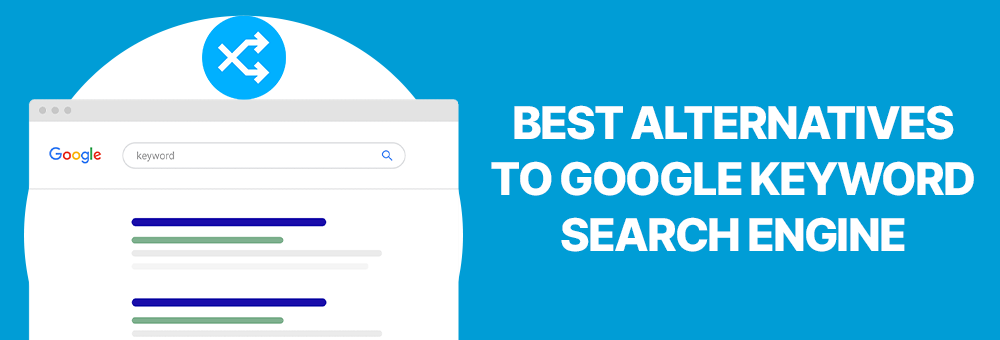When it comes to SEO, it’s clear that Google is the top reference, since it’s the platform where you want to rank.
That’s why the free tools it offers, like Google Search Console and Google Analytics, are completely reliable and should be your first go-to options.
However, despite their reliability, these tools can sometimes fall short when it comes to the depth of functionality SEO’s need to optimize a website effectively.
This is especially true for Google Keyword Planner, Google’s own keyword research tool. Let’s take a closer look at how it works and explore some alternatives you might want to consider.

Keyword Planner, Google keyword finder (rather limited?)
The first thing you should know is that Google Keyword Planner is designed to help you find the best keywords for your Google Ads campaigns.
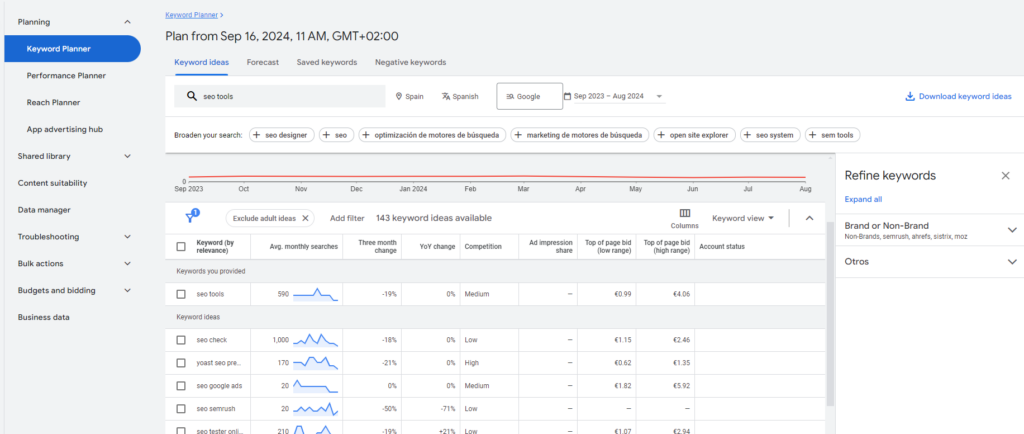
This doesn’t mean you can’t take advantage of the tool to work on your website’s SEO.
- It suggests keywords related to your website or business
- It provides estimated search volumes for each keyword
- It tells you the average cost of a campaign
- It organizes keywords into categories relevant to your business
- It helps you create keyword-based ad campaigns
You don’t necessarily have to use Keyword Planner just to run a campaign. In fact, many users simulate creating one just to get access to the tool—which is a common and valid workaround.
To do this, log into your Google Ads account in Expert Mode, and complete the initial setup, including billing details—even if you’re not actually going to spend any money.
Alternatives to Google Keyword Planner
As you’ve seen, both Google Keyword Planner and Google Trends are helpful for getting keyword ideas at no cost.
However, depending on your workflow or the type of project you’re working on, it’s likely that these tools won’t be enough—especially if you want to perform more in-depth keyword analysis.
At some point, you’ll need to turn to more comprehensive software, so here are a few free and affordable SEO tools you can use for your keyword research.
DinoRANK
DinoRANK’s Keyword Research module is designed to help you easily find relevant and profitable keywords for your SEO strategy.
Just enter a main keyword, and the tool generates a list of related search terms, along with essential metrics like:
- Search volume
- Keyword difficulty
- Cost per click (CPC)
- Search trend graphs to identify seasonal opportunities
In addition, if you activate the “Alternative recommendations to your initial seed keyword” option, you can get suggestions for other keywords with higher search volume that you may not have thought of before.
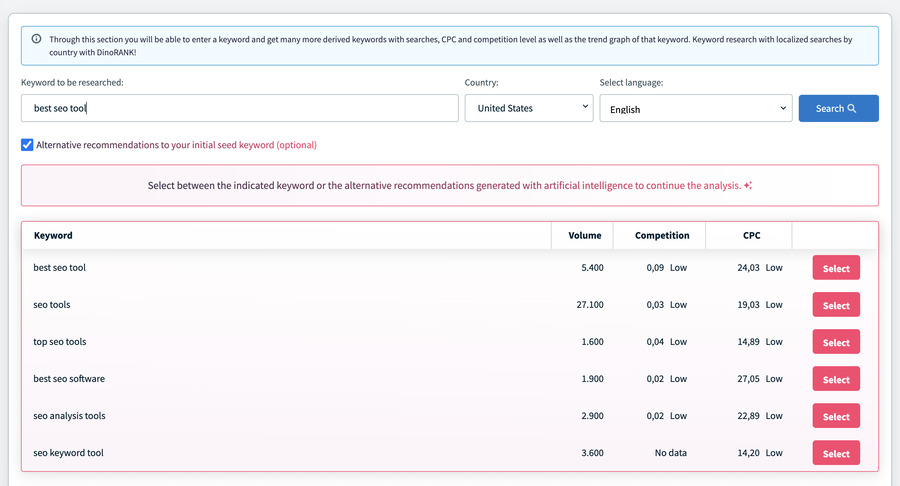
If you prefer not to receive recommendations from the tool, you will access a table with a complete list of information on this keyword and many other related keywords.
You can see it like this:
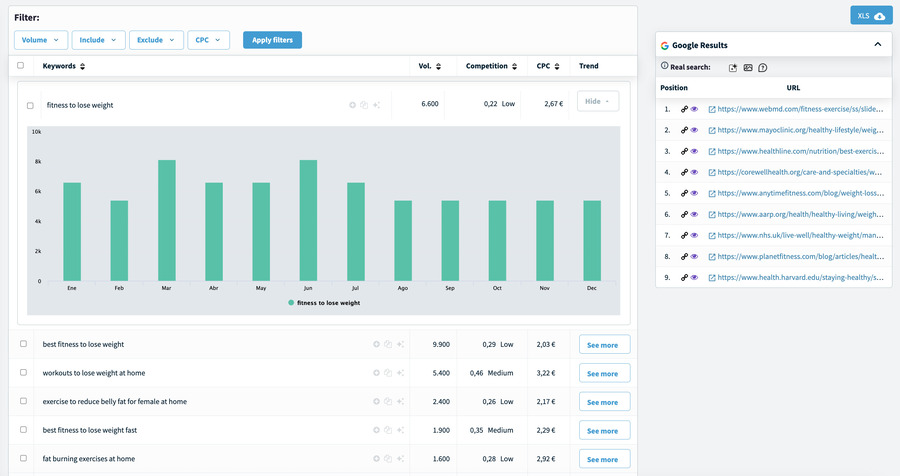
What sets DinoRANK apart is its integration with other modules.
With just a few clicks, you can send selected keywords directly to the Rank Tracking module, so you can monitor your positions over time.
The interface is intuitive and beginner-friendly, making it ideal for SEOs who want powerful features without the complexity of tools like Ahrefs or Semrush.
In short, DinoRANK lets you perform a complete keyword research workflow—from discovery to tracking—within a single platform.
- You can now also chat with DinoRANK’s AI and its Keyword Research module: just tell it what you want to write about, and it will recommend the best keywords for your content.
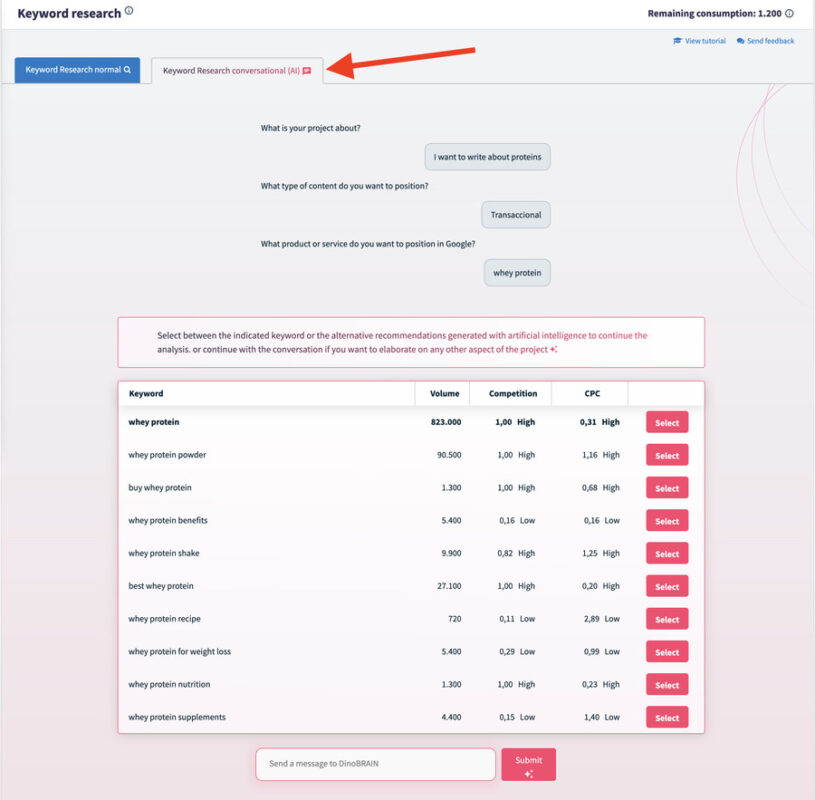
Choose the one that best fits your SEO strategy and you will see a whole table with insights that will help you to create and position your content.
Keyword Surfer
Another interesting tool is Keyword Surfer, a free Google Chrome extension.
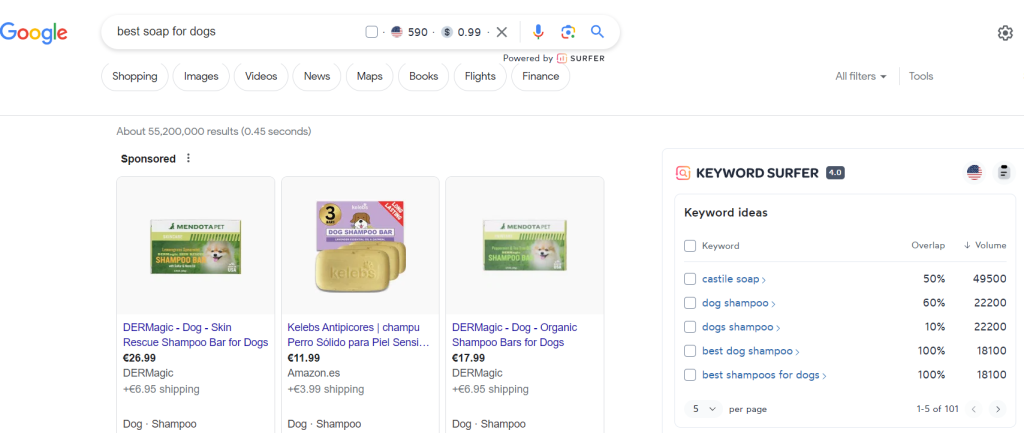
It only takes a minute to install it in your browser, and you’ll see the results directly in Google’s search results, as shown in the screenshot.
In the box on the right, you can see the search volume for related keywords. You can select the ones you’re interested in and download them in a CSV file to work with them.
In the results, you can see under each listing the estimated traffic each URL gets for the keyword you searched, which helps you assess how valuable that keyword might be.
This extension seems like a solid alternative to Google Keyword Planner because it provides more useful information for your keyword research.
Answer The Public
Answer The Public has long been one of the great favorites when it comes to working with keywords, especially for the way it displays the results in graphical form.
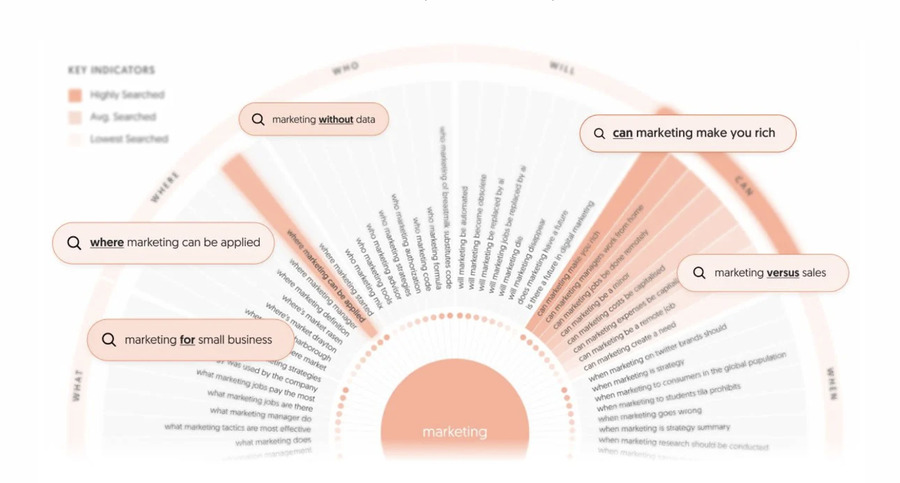
In addition, as you see in the screenshot, it not only tells you keyword suggestions related to your seed keyword but also questions, combinations with prepositions, comparisons…
This way, you get a lot of content ideas in just one minute. Finally, you can download the whole list of keywords in a CSV file.
However, in recent times Answer The Public has restricted its free options and only allows 3 daily searches without registration and three searches if you create a free account.
So it’s not so much a tool to work with on a regular basis as it is a tool best used on an ad hoc basis, especially if you’ve run out of ideas for content creation.
Pricing plans have also risen considerably, starting with the lifetime plan that costs just over $120 or paid monthly at a rate of about $15.
Moz Keyword Explorer
Moz Keyword Explorer offers a clean interface and useful features for keyword research.
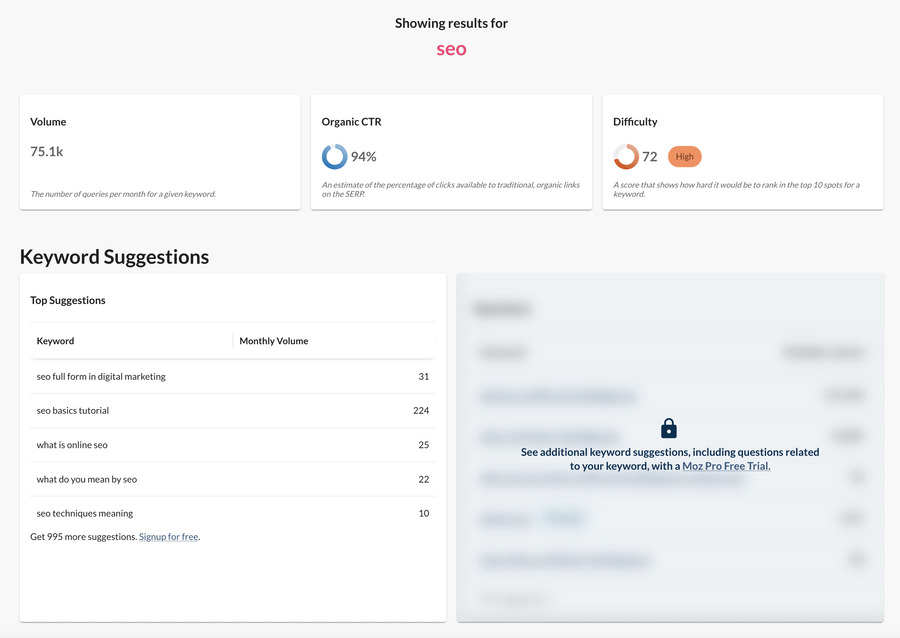
It provides keyword suggestions, search volume rankings, difficulty scores and an estimate of organic CTR, all based on Moz’s own data.
You can also explore related terms, sort by relevance or volume, and even analyze SERP characteristics associated with a keyword, all useful when crafting a content strategy.
One major drawback, however, is the limited number of queries you get with a free Moz account.
Once you reach your quota, you’ll have to upgrade to a premium plan, which can be expensive if you’re just starting out or manage multiple projects.
As its most comprehensive version is paid, it is quite limited compared to other paid SEO tools, such as DinoRANK.
For a similar price, DinoRANK offers much more functionality, including not only keyword research, but integrated tools for ranking tracking, content optimization, link building and technical SEO, making it a much more complete and cost-effective solution.

Conclusion: should you use Google Keyword Planner?
While we’ve seen that Google Keyword Planner has its limitations, it’s still a valuable source of information—directly from Google itself.
That’s why you can definitely use it to find keyword ideas, as long as you’re aware that if you need more detailed data, you’ll have to rely on another keyword analysis tool.
As always, the right SEO tool depends on your needs and how you approach SEO to rank on Google or other search engines.
Test, experiment, and decide what works best for you.

